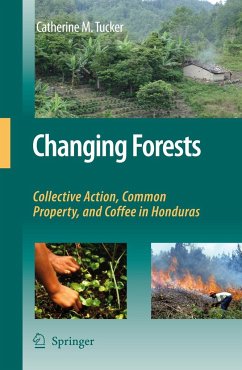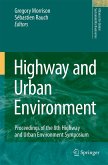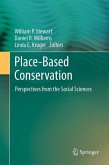Drawing on ethnographic and archival research, "Changing Forests" explores how the indigenous Lenca community of La Campa, Honduras, has conserved and transformed their communal forests through the experiences of colonialism, opposition to state-controlled logging, and the recent adoption of export-oriented coffee production. It merges political ecology, collective-action theories, and institutional analysis to study how the people and forests have changed through socioeconomic and political transitions encompassed in three broad phases: (1) the premodern period, which considers historic perturbations in western Honduras from the period of colonialism into the middle of the twentieth century; (2) the period of state-led logging and intervention in La Campa, which caused major degradation in forest cover; and (3) the recent period in which export coffee production transformed property rights, and people's perceptions of the forest gained new conservationist and economic dimensions. Each phase entails perspectives and experiences that influenced human use of forests, and shaped subsequent transformations.
Growing social heterogeneity, population growth, and market integration present challenges for sustainable forest management, but satellite images show that forest cover has expanded since the community prohibited logging in 1987. The indigenous people have created a watershed reserve and agroforestry cooperatives, and maintain forests as part of a resilient livelihood strategy.
Growing social heterogeneity, population growth, and market integration present challenges for sustainable forest management, but satellite images show that forest cover has expanded since the community prohibited logging in 1987. The indigenous people have created a watershed reserve and agroforestry cooperatives, and maintain forests as part of a resilient livelihood strategy.
From the reviews: "A principal argument in the book is that the community's relative success in maintaining forests is due to institutional factors that have been found elsewhere to lead to successful common property management ... . Changing Forests is intended for environmental scientists and policymakers, conservationists, social foresters, ecological and environmental anthropologists and economists, sociologists, geographers, development analysts, and Latin America specialists. ... It is particularly important for those concerned with collective action and common property and is a worthy addition to libraries ... ." (Patricia L. Howard, Mountain Research and Development, Vol. 29 (4), November, 2009)







